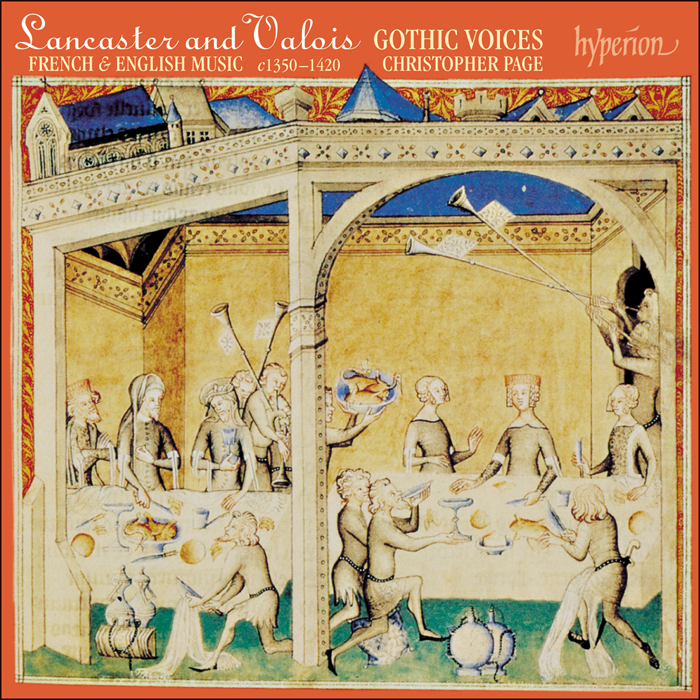Lancaster and Valois – French and English Music, c1350–1420
Gothic Voices, Christopher Page (conductor)
CDA66588
This is the most prolific composer of the fourteenth century, Guillaume de Machaut, referring to a polyphonic song that he had recently composed. Although Machaut is describing the individuality of his own work in this letter, his description of the ballade in question as ‘very unusual’ (mout estrainges) and ‘very novel’ (mout nouviaus) evokes the whole repertoire of fourteenth-century French music. In Middle French estrainges means ‘unusual’, ‘strange’ or even ‘incomprehensible’, and it is easy to believe that Machaut and other composers of the Ars Nova were proud of the exotic effects that their music released when performed, effects so fleeting that they cannot all have been foreseen during the compositional process. Sometimes, it seems, the French composers of the fourteenth century directed their parts with a mischievously subversive attitude to harmony that was not shared by their successors in the fifteenth. It is hard to imagine the mature Dufay, for example, creating the wanton minor second that Solage produces, by impeccable melodic logic, in the third measure of Tres gentil cuer.

